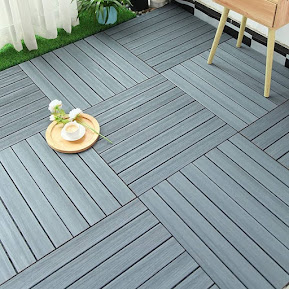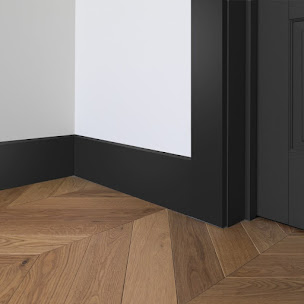Interlocking Illusions: Decking Tile Tales
Composite Decking Tiles that connect to create a floating floor are known as interlocking tiles. They are held in place by their own weight's gravitational pull and are connected via an interlocking mechanism on a level surface.
Factory machinery is used to create interlocking pavers. They are made up of cement compounds and aggregate with both small and coarse grains. The components go through vibration and pressure courses to create a robust, long-lasting concrete that can be shaped into a variety of patterns.
The fact that interlocking floor tiles are quick and simple to install is one of their key advantages. The majority of the time, interlocking floor tiles don't require adhesive, making them very user-friendly. Customers can choose to use our services or do the installation themselves if the space is reasonably small, as it only requires clicking each tile into place.
One other advantage is the fact that these can be put over damaged or already-existing subflooring, so no major repairs need to be done beforehand. Interlocking tiles for floors are ideal for commercial businesses looking for speedy installation because they don't require a business closure to install.
In addition to public spaces like shops and retail malls, they are often used in garages, basements, parks, gyms, patios, and decks. Usually, they have an easy-to-assemble, snap-together design that doesn't require any specialized knowledge or tools. They work well for do-it-yourself home improvement jobs. Rubber, foam, plastic, and even wood are just a few of the materials that may be used to create interlocking tiles.
What is the strongest tile for a floor?
Given their extended lifespan, ease of sourcing, and captivating visual appeal, tiles are an affordable option for any wall or floor. Tiles are a popular choice among homeowners because they offer long-term value for money, but choosing from the wide variety of styles and substances available can be challenging. When buying new tiles, one of the most crucial things to think about is whether or not they will be sufficiently durable for your floor.
Uses of Interlocking Floor Tiles
Residential Use
Homeowners like Interlocking Deck Tiles because they offer a flexible flooring option. Installing the tiles is simple and requires little preliminary work. Interlocking floor tiles are a great option for covering garage floors, basements, and even outdoor areas like patios and decks for homeowners. With interlocking floor tiles, homeowners may design a custom flooring solution that fits their tastes and requirements.
Commercial Use
Reinstalling a new floor in a commercial setting can be expensive, particularly if the company must close while the floor is installed. We take pride in providing businesses with zero downtime during the installation of interlocking floor tiles, ensuring that revenue and productivity are not affected. We provide a large range of colors, branded flooring alternatives, and an option for flooring that combines the advantages of common commercial flooring solutions, such as carpet, vinyl, and wood, because we recognize that color and design are important when selecting a floor for commercial use.
Industrial Use
Because of their distinctive dovetail join, our interconnecting floor tiles are a quick and simple flooring option to set up in a factory. Additionally, they can be put over uneven, wet, and dusty subfloors with little to no flooring preparation needed. The sturdy and long-lasting construction of the tiles offers a very affordable, safe, and long-lasting flooring option. These tiles are a great option for industrial flooring since they require little maintenance and have anti-slip, anti-fatigue, and impact resistance properties.
Outdoor Use
Another option for outdoor flooring is interlocking floor tiles. Patios, decks, and various other outdoor areas can be covered with tiles to create a sturdy, long-lasting, and easily maintained surface. Interlocking tiles for floors are a strong and long-lasting choice for outdoor flooring since they are resistant to weathering, UV radiation, and water.
Heat Insulation and Chemical Resistance
Composite Decking Tiles offer heat insulation in addition to noise insulation, which makes them a popular option for usage in factories and warehouses. Tight interlocking elements in the tile design keep heat from escaping and also keep moisture and frost from the subfloor from penetrating. Employers may find working conditions in places, including open warehouses, to be particularly challenging due to the intense cold. To guarantee that all heat is retained above ground, tiles that interlock are the ideal answer. Customers may feel reassured that their flooring is long-lasting and protected thanks to these elements, which also help to ensure protection against chemicals and corrosives.
To keep your interlocking tiles in good condition, you must clean them frequently. To remove dirt and debris from the tiles, vacuum or sweep them frequently. For stubborn stains, spot-clean the affected area using warm water mixed with a small amount of detergent. Steer clear of harsh chemicals and anything that could damage the tiles, like abrasives.




Comments
Post a Comment